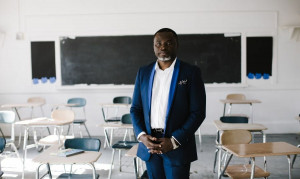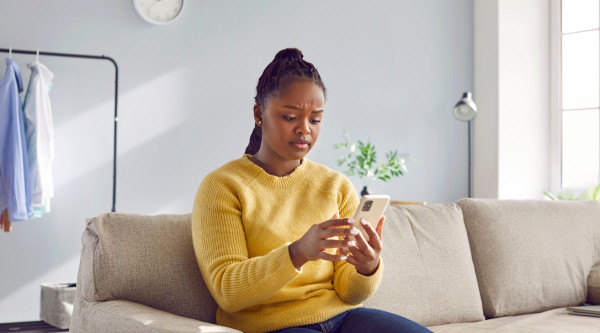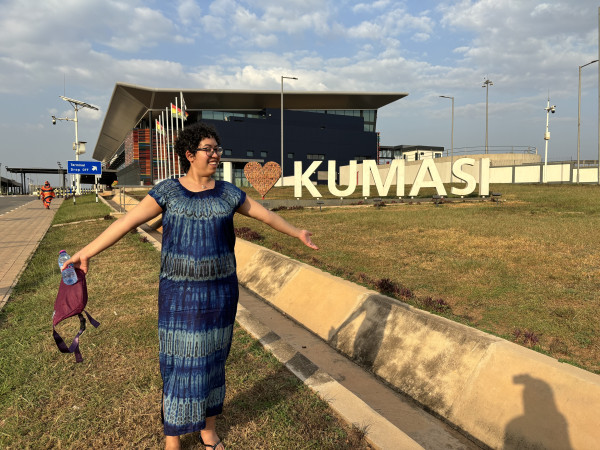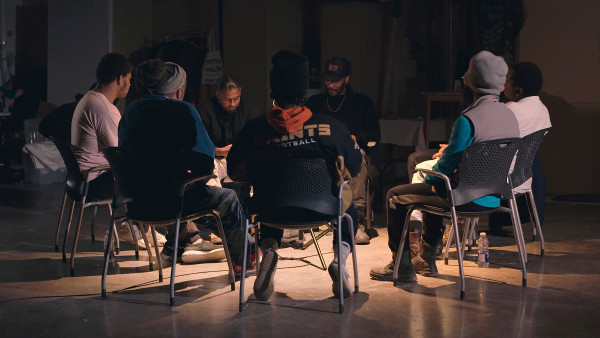The Organizations
The Africa Centre is based out of Edmonton, Alberta, and offers a variety of programs for Alberta’s African-descent community, ranging from daycare services to a culturally-relevant food bank program. Recently, the Africa Centre launched a new mental health program in order to provide mental health support to Black youth aged 15 - 24. This program includes teachings from psychologists, education around cultural history, mentorship, and hands-on sessions focused on self-expression and art. In addition to these sessions, the Africa Centre holds conversation cafes to discuss topics like the media’s portrayal of Black death and ‘what are microaggressions’?
“The purpose of every activity is for people to understand they're not alone,” says Odion Welch, Mental Health Youth Program Coordinator at the Africa Centre.
After every activity or event through the mental health program, students are provided with a list of counselling and mental health resources in the area. After providing students with these resources, Welch was being told by the youth that they would love to see a counsellor but didn’t know where to start or how to find a counsellor that would understand their unique experiences. With increasing conversations, it became apparent to the Africa Centre that a counselling clinic was necessary.
After receiving funding from the United Way, Africa Centre discovered the Alberta Black Therapists Network at Edmonton’s Black-Owned Market.
The Alberta Black Therapists Network was established primarily as a way for Black therapists to network with one another. It quickly developed into a nonprofit that works to provide equitable, holistic mental health services to the Black community. ABTN accomplishes this through strategic partnerships with existing organizations, developing and implementing data-driven frameworks, increasing access to mental health services, and building awareness about health concerns that affect the Black community.
Partnering Together
After meeting at the Black-Owned Market, Africa Centre and ABTN knew they needed to collaborate. “Mental health tends to be an afterthought,” Says Noreen Sibanda, Executive Director of ABTN. “So the idea behind this program is to flip that script a little bit.” For ABTN, teaming up with Africa Centre was crucial, as it allows those who are already using Africa Centre services to have access to counselling as well.
“For these individuals that are already connected with the Africa Center, rather than saying, ‘hey, go to that place and get mental health support,’ it's offered in house,” says Sibanda. “They know the organization, and they can trust the organization...it allows them to feel like, ‘okay, if I come to the Africa Centre to help my kids with homework, while they're doing that I can be getting mental health support.’ So it doesn't feel like an afterthought, it feels like it's part of the services that [they’re using] already.”
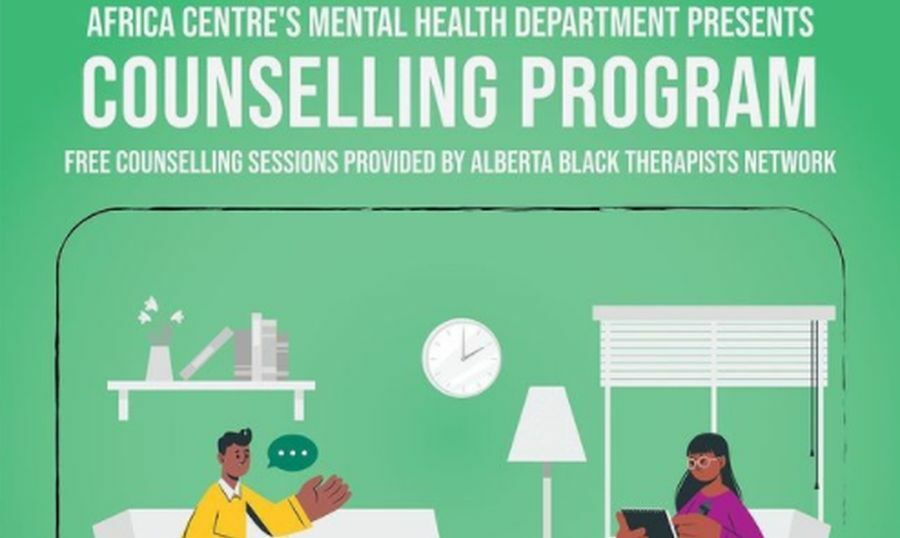
Removing Barriers
Due to COVID-19, all counselling sessions will be offered virtually. However, even when COVID restrictions change, this program will offer virtual sessions as an option as well as in-person sessions. This is to address one of the common barriers to accessing good quality therapy, which is travel. “We need to be offering virtual and in person, not just because of the pandemic, but in general,” says Welch. “Sometimes just the commute to go to counselling can stop people from going.”
Another common barrier to therapy access is timing. “In downtown Edmonton, there are three different places that offer drop-in free counselling throughout the week,” says Welch. “But [the hours are] like 10am - 4pm. So if you're in school or you have a job, you can't go.” The sessions offered through the Africa Centre’s new counselling program have flexible hours during evenings and weekends.
While many have assumed that these sessions are only available to Black Albertans, Africa Centre has opened up the program to anyone who needs it. These services are available for individuals, families, and couples, regardless of race or employment status.
Supporting Black Albertan Youth
With anxiety, stress, and feelings of isolation rising due to COVID-19, now is arguably the most crucial time for a program like this. “People are more isolated, and they are not as humanly connected as they normally are,” says Sibanda. “We're all wired for connection...knowing that you have a friend, knowing that you have someone that you can reach out to, is very important, not only to our mental health but to our overall well being.”
Currently, most of the clients for the new program range from ages 18 - 24, which is consistent with the Statistics Canada findings that this demographic has experienced the greatest mental health decline since the pandemic. Black Albertan youth, specifically, face a unique challenge, as they have not been as nurtured as Black communities in other provinces. “The Black youth community within Alberta tends to feel like an afterthought in comparison to youth in Ontario,” says Sibanda. “So I think the youth within Alberta are more likely or keener to access services when they do come up because they know that this is something that didn't exist before.”
While COVID by no means created mental health challenges like anxiety and depression, it has certainly exacerbated them, which makes now the optimal time for services like this.
Albertans can sign up for free, one-hour counselling sessions at africacentre.ca/counselling

 By
By 




